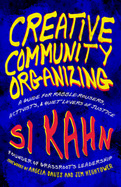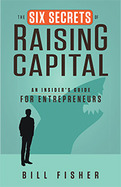Si Kahn's impromptu song at BK Author Day Lunch Meeting
Gerald Davis argues this is a root cause of the income inequality and social instability we face today. Corporations were once an integral part of building the middle class. He points out that in their heyday they offered millions of people lifetime employment, a stable career path, health insurance, and retirement pensions. They were like small private welfare states.
The businesses that are replacing them will not fill the same role. For one thing, they employ far fewer people—the combined global workforces of Facebook, Yelp, Zynga, LinkedIn, Zillow, Tableau, Zulily, and Box are smaller than the number of people who lost their jobs when Circuit City was liquidated in 2009. And in the “sharing economy,” companies have no obligation to most of the people who work for them—at the end of 2014 Uber had over 160,000 “driver-partners” in the United States but recognized only about 2,000 people as actual employees.
Davis tracks the rise of the large American corporation and the economic, social, and technological developments that have led to its decline. The future could see either increasing economic polarization, as careers turn into jobs and jobs turn into tasks, or a more democratic economy built from the grass roots. It's up to us.
- Addresses a universal experience and offers a positive solution in an easy-to-read illustrated fable format
- Details five keys for ensuring that everyone "gets it"
- By the coauthor of the bestselling Beans! and 301 Ways to Have Fun at Work (more than 75,000 copies sold)
- Find out more at www.ChangeIsFun.com
2006
- By the author of the bestselling Somebodies and Nobodies: Overcoming the Abuse of Rank
- Argues that rankism--abuse of the power that comes with superior rank--does serious damage to our private relationships and public institutions
- Details how to design social institutions that overcome rankism and protect human dignity
- Learn more at www.BreakingRanks.net
Provides an intimate experience of how seven healthy and resilient communities took on intractable problems by working together in new and different ways.
The Enhanced Edition includes 25 minutes of animation, video, and audio. The animation shows the “Two Loops Theory of Change” with a voiceover from co-author Deborah Frieze. Three videos show inspirational “Walk On” communities in Brazil, South Africa, and India. This edition also includes the “Walk Out Walk On” theme song.
- 2012 Nautilus Silver Award Winner in Social Change Category
-
By the bestselling author of Leadership and the New Science and Turning to One Another
-
Provides an intimate experience of how seven healthy and resilient communities took on intractable problems by working together in new and different ways
-
immerses the reader in the experience of each community through stories, essays, first-person accounts, and over 100 color photos
This is an era of increasingly complex problems, fewer and fewer resources to address them, and failing solutions. Is it possible to find viable solutions to the challenges we face today as individuals, communities, and nations? This inspiring book takes readers on a learning journey to seven communities around the world to meet people who have "walked out" of limiting beliefs and assumptions and "walked on" to create healthy and resilient communities. These Walk Outs who Walk On use their ingenuity and caring to figure out how to work with what they have to create what they need.
In India, we meet people from Shikshantar, a community that is rejecting the modern culture of money, with its emphasis on self-interest and scarcity, in favor of a gift culture based on generosity and reciprocity. In Zimbabwe, we discover the capacity people have to adapt and invent new ways of surviving and thriving in the face of total systems collapse.
Through essays, stories, and beautiful color photographs, Wheatley and Frieze immerse us in these communities that are accomplishing extraordinary things by relying on everyone to be an entrepreneur, a leader, an artist. From Mexico to Greece, from Columbus, Ohio to Johannesburg, South Africa, we discover that every community has within itself the ingenuity, intelligence, and inventiveness to solve the seemingly insolvable. "It's almost like we discovered a gift inside ourselves," one Brazilian said, "something that was already there.





















